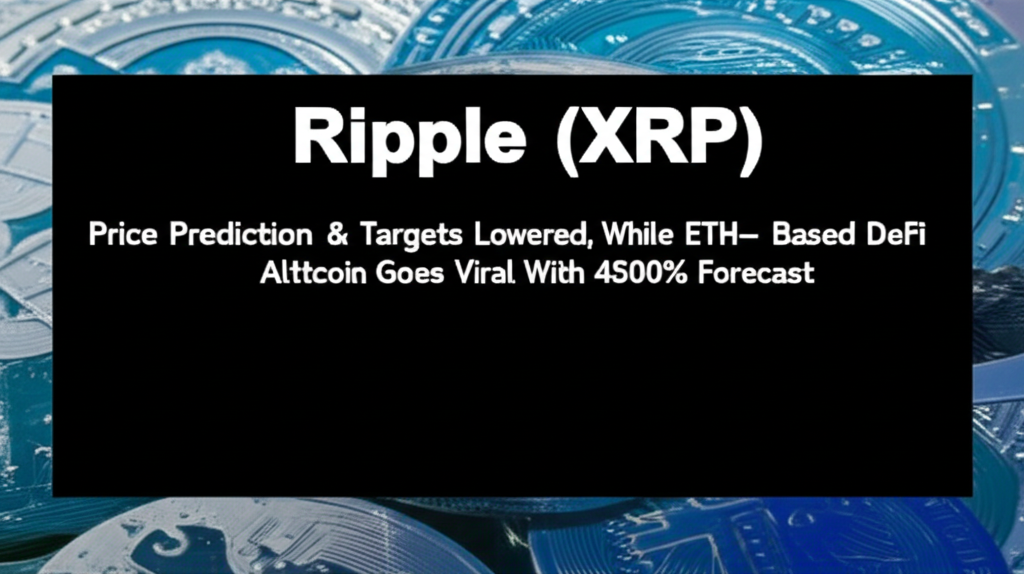BlackRock, the world’s largest asset manager, has announced plans to expand its cryptocurrency exchange-traded fund (ETF) offerings to include a wider range of digital assets beyond just bitcoin and ethereum, signaling a new phase of institutional acceptance and diversification in the crypto investment space.
Expansion Beyond the Giants of Crypto
BlackRock’s initial foray into cryptocurrency ETFs concentrated heavily on bitcoin and ethereum — the two leading digital currencies by market capitalization and market influence. These assets have traditionally been the cornerstone of crypto investment due to their relative stability and widespread adoption among individual and institutional investors alike. By focusing first on these two cryptocurrencies, BlackRock was able to align itself with what the market viewed as the safest and most understood assets within an otherwise volatile sector.
The new strategic direction, however, signals a marked departure from this conservative approach. The company’s planned expansion aims to incorporate altcoins—cryptocurrencies beyond bitcoin and ethereum—that have shown significant growth potential and have been gaining increasing traction among investors seeking diversification within the crypto space. These altcoins often come with distinct technological features and unique value propositions that differentiate them from established coins.
Market Impact and Industry Influence
Industry analysts view BlackRock’s decision as a potential catalyst for broader industry changes. Market experts anticipate that the move will spur other major asset managers to reassess their cryptocurrency offerings and possibly introduce a wider range of crypto ETFs. Such diversification strategies could broaden the appeal of crypto investments to more conservative institutional investors who might have been hesitant to commit funds exclusively to bitcoin or ethereum.
The ripple effect could accelerate the maturation of the crypto investment ecosystem by enhancing liquidity in lesser-known tokens and encouraging innovation in ETF structures and portfolio strategies. This expansion may also introduce new opportunities for investors to gain exposure to emerging sectors within the digital asset market, such as decentralized finance (DeFi), non-fungible tokens (NFTs), and blockchain interoperability solutions.
Commitment to Compliance and Risk Management
In making this announcement, BlackRock underscored that regulatory compliance and risk management will remain at the forefront of its efforts to expand crypto ETF offerings. Given the heightened regulatory scrutiny currently affecting the digital assets market worldwide, the company’s approach reflects a cautious yet forward-looking stance. Investor protection and adherence to evolving legal frameworks are priorities intended to safeguard both client assets and the firm’s reputation.
Larry Fink, CEO of BlackRock, commented on the strategic shift, stating, “We see expanding the range of digital assets in our ETF offerings as essential to meeting the diverse needs of our clients in this rapidly evolving market.” His statement highlights the balance BlackRock seeks between innovation and stability, a critical factor in gaining trust among traditional financial participants venturing into crypto investment.
Regulatory Environment and Global Context
The timing of BlackRock’s announcement coincides with a period of increasing regulatory attention on cryptocurrencies. Around the world, governments and financial regulators are actively working to define clearer policies to govern digital assets, aiming to curb illicit activities and protect investors without stifling innovation.
These regulatory developments create a dynamic and sometimes unpredictable backdrop for crypto investment products. By emphasizing compliance and risk oversight, BlackRock is positioning itself to navigate the complexities of these changing standards while continuing to offer cutting-edge investment vehicles.
Broader Institutional Trends and Diversification
Historically, ETFs linked to cryptocurrencies have been heavily skewed toward bitcoin and ethereum. Their dominance in the crypto market reflected these coins’ perceived stability and broad acceptance. However, as the crypto ecosystem matures, institutional investors are increasingly interested in diversifying their exposure to include altcoins and other innovative digital assets that represent the growing technological variety within the sector.
This shift represents recognition that emerging crypto assets provide alternate benefits such as enhanced transaction speeds, improved scalability, or novel financial instruments enabled by blockchain technology beyond the traditional stores of value represented by bitcoin and ethereum.
A renowned crypto market analyst observed, “BlackRock’s move could be a game-changer, setting a precedent for institutional adoption beyond the traditional bitcoin and ethereum focus.” This perspective underlines how BlackRock’s entrance into a broader digital asset ETF market could influence not only asset allocation strategies but also the overall acceptance of cryptocurrency as a legitimate and diverse asset class.
Looking Forward: Regulatory Clarification and Market Development
BlackRock’s foray into diverse crypto ETFs could encourage regulators to further clarify and refine the frameworks surrounding digital asset investment products. Such clarity is expected to foster safer environments for innovation, making it easier for institutional players to develop and market a variety of cryptocurrency-based funds.
As legitimacy increases alongside the development of sophisticated risk management strategies, the cryptocurrency ETF landscape is likely to evolve substantially. The next phase could see a significant expansion in both the number of investment options and the investor base, potentially reshaping traditional investment paradigms within the financial services industry.
The company’s initiative aligns with a broader institutional trend toward deeper crypto integration and portfolio diversification. This could stimulate growth in sectors like DeFi and blockchain interoperability, pushing the boundaries of what crypto investment products can offer in terms of risk-return characteristics and market exposure. Such advancements may also catalyze enhanced investor confidence and mainstream adoption in the years to come.




